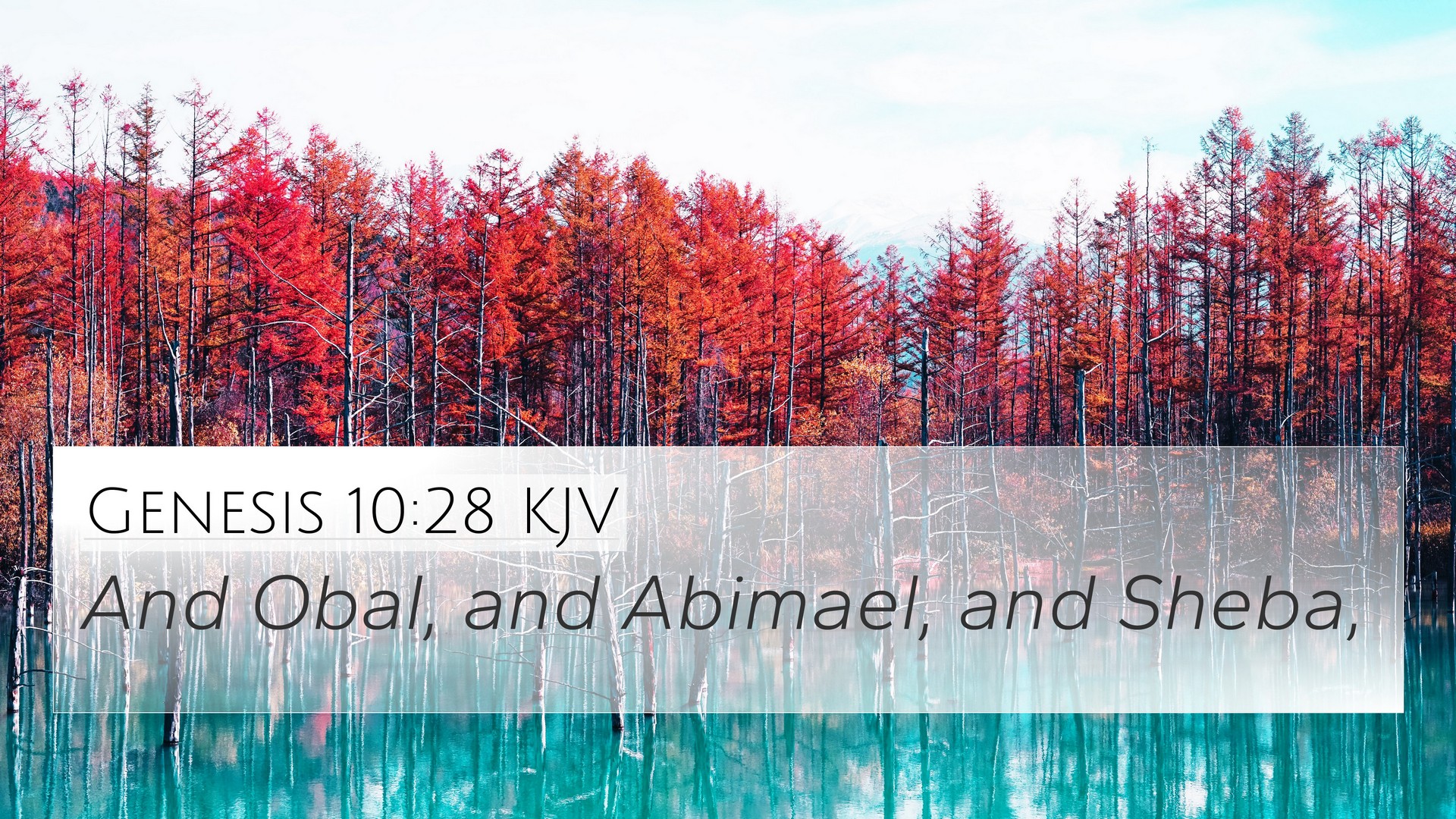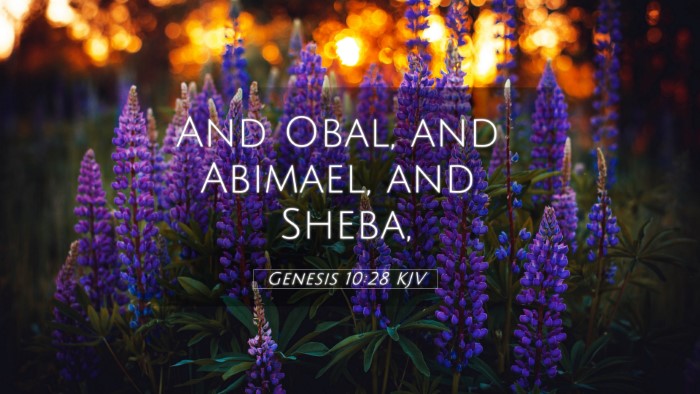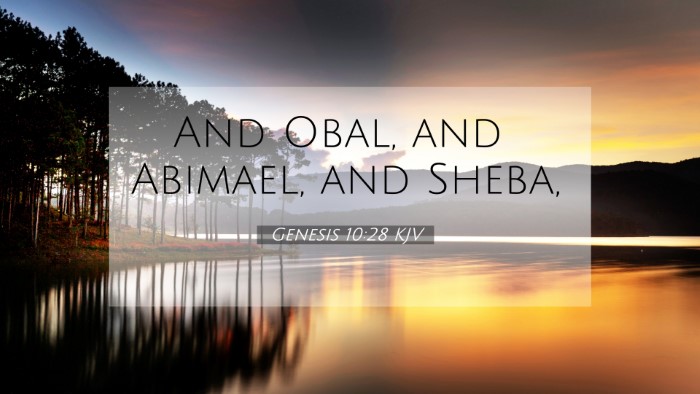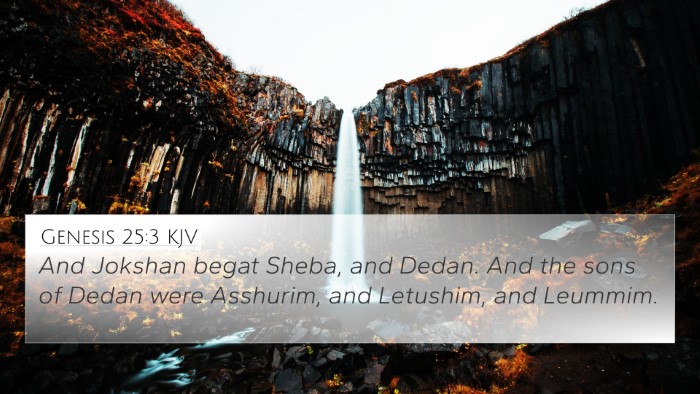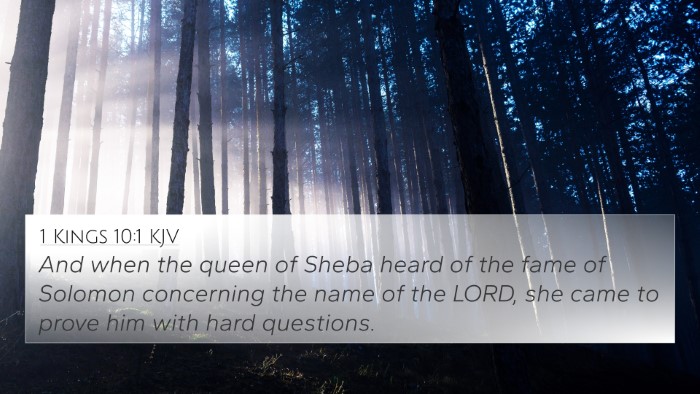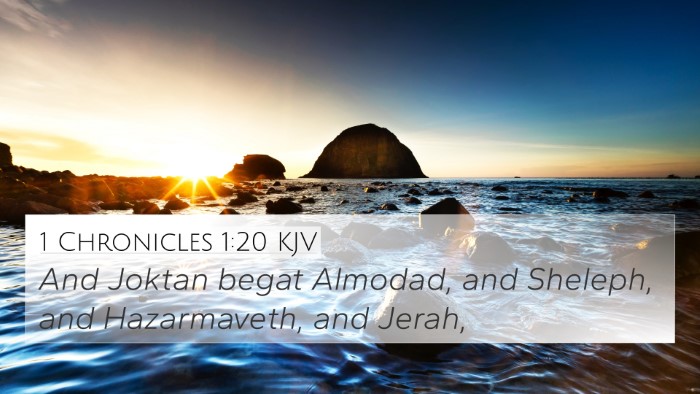Understanding Genesis 10:28
Genesis 10:28 states: "And Obal, and Abimael, and Sheba." This verse is part of the genealogy presented in Genesis 10, often referred to as the Table of Nations. This chapter outlines the descendants of Noah's sons and serves to illustrate the divisions of humanity into various nations and peoples.
Summary of Meaning
The mention of Obal, Abimael, and Sheba highlights the lineages that came from Shem, Ham, and Japheth, emphasizing the spread of nations and cultures after the Flood.
Insights from Commentaries
- Matthew Henry: Henry emphasizes that these names are a demonstration of the fulfillment of God's command to Noah to repopulate the earth. Each name represents a lineage contributing to the continued human story.
- Albert Barnes: Barnes notes that the genealogical records serve both historical and theological functions, showing how different nations originated and how they fulfill God’s plan for humanity.
- Adam Clarke: Clarke points out that the names mentioned are likely related to various tribes and regions, thus demonstrating the cultural diversity that resulted from the descendants of Noah.
Bible Verse Cross-References
The study of Genesis 10:28 is enriched by cross-referencing it with other Bible verses that illuminate its context and meaning.
- Genesis 9:1: God's command to Noah to "be fruitful and multiply," directly connects to the genealogies following the flood.
- Genesis 10:1: The opening verse of the Table of Nations reminds readers that these genealogies are significant in tracing lineage.
- Genesis 11:10-26: The genealogical record of Shem that follows further connects the descendants back to Noah's sons.
- Acts 17:26: Paul speaks of all nations being made from one blood, which echoes the unity of humanity described in Genesis.
- Isaiah 54:1-3: This passage reflects God’s promise to His people and their eventual multiplication, relating thematically to Genesis 10:28.
- Ezekiel 32:22-30: The nations that arose from Noah’s descendants, including those mentioned in Genesis 10, are referenced in prophetic contexts.
- Colossians 3:11: Paul emphasizes the equality of all believers in Christ, underscoring that all of humanity originated from God’s creation, paralleling the genealogical narrative in Genesis.
Making Connections Between Bible Verses
Understanding Genesis 10:28 through cross-references allows one to see how different parts of the Bible inform one another:
- The genealogical connections demonstrate God’s plan for humanity’s expansion and diversity.
- Through scriptural cross-referencing, patterns of God’s blessings and promises unfold, linking Old Testament narratives with New Testament teachings.
- Identifying themes such as human unity post-Noah and God’s covenantal relationship can be studied through comparative analysis of these scriptures.
Thematic Bible Verse Connections
Genesis 10:28 is aligned with several themes found across Scripture:
- God’s Sovereignty: The naming of nations emphasizes His control over human history.
- Divine Covenant: Each name serves as a reminder of God’s promises to Noah and the expansion of his descendants.
- Redemption Narrative: The continuation of lineages sets the stage for God’s redemptive work through history, leading to Christ.
Cross-Referencing Biblical Texts
Utilizing tools for Bible cross-referencing can enhance the study of Genesis 10:28:
- Bible Concordance: Helps in finding related terms and names that appear throughout Scripture.
- Bible Cross-Reference Guide: Provides insights into how these names interact with other biblical figures.
- Cumulative Study: Cross-referencing allows for deeper theological reflection and better understanding of God’s nature.
- Comparative Analysis: By analyzing this text with similar genealogical records in Matthew 1:1-17, the connections deepen.
Conclusion
The genealogies in Genesis, including Genesis 10:28, open avenues for exploration into biblical history and theology. They connect believers today with the ancient narratives and underscore the theological significance of each name listed in the scripture.
